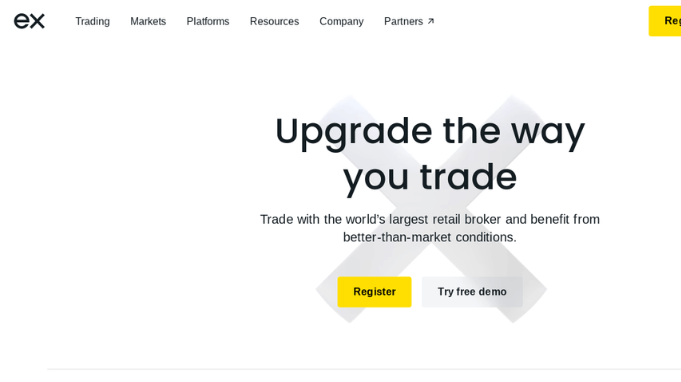If you’re looking for a Robinhood review to decide whether this popular trading app is right for you, you’ve come to the right place. Robinhood has revolutionized investing by making it accessible to beginners with its commission-free trades and user-friendly interface. But is it the best choice for your needs?
In this detailed Robinhood review, we’ll cover:
✅ How Robinhood works
✅ Pros and cons
✅ Fees and pricing
✅ Features like Robinhood Gold
✅ Safety and reliability
✅ Alternatives to Robinhood
By the end, you’ll know whether Robinhood is worth using in 2025.
Robinhood Overview
Robinhood is a commission-free investing app that allows users to trade stocks, ETFs, options, and cryptocurrencies without paying traditional brokerage fees. Launched in 2013, it quickly gained popularity for its simple design and no-minimum-balance requirement, making investing accessible to beginners.
Key Features of Robinhood
✔ Zero-commission trading (stocks, ETFs, options, crypto)
✔ Fractional shares (buy part of a stock with as little as $1)
✔ User-friendly mobile app (great for beginners)
✔ Robinhood Gold ($5/month for margin trading & bigger instant deposits)
✔ Cryptocurrency trading (Bitcoin, Ethereum, Dogecoin, etc.)
✔ Cash management (earn interest on uninvested money)
Pros and Cons of Robinhood
👍 Pros of Robinhood
- No Commission Fees – Unlike traditional brokers, Robinhood doesn’t charge fees for stock or ETF trades.
- Easy-to-Use App – Perfect for beginners with a clean, intuitive interface.
- Fractional Shares – Invest in expensive stocks (like Amazon or Tesla) with just $1.
- Fast Account Setup – Open an account in minutes with no minimum deposit.
- Free Stock for Sign-Up – Robinhood sometimes offers a free stock (like Apple or Ford) for new users.
👎 Cons of Robinhood
- Limited Research Tools – Lacks advanced charting and analysis features compared to brokers like Fidelity or TD Ameritrade.
- No Retirement Accounts – Robinhood doesn’t offer IRAs or 401(k)s.
- Customer Support Issues – Some users report slow response times.
- No Mutual Funds or Bonds – You can’t invest in mutual funds or bonds on Robinhood.
- Past Controversies – Robinhood faced criticism during the GameStop (GME) short squeeze in 2021 for restricting trades.
Robinhood Fees: Is It Really Free?
Robinhood is known for zero-commission trading, but there are some hidden costs to be aware of:
- Options Trading Fees: $0 to trade, but a small regulatory fee applies.
- Robinhood Gold: $5/month (optional) for margin trading and larger instant deposits.
- Crypto Spread: Robinhood makes money on cryptocurrency trades through the bid-ask spread.
- Wire Transfers & ACAT Fees: $75 for outgoing transfers.
Overall, Robinhood is one of the cheapest brokers, but advanced traders might miss having more research tools.
Robinhood Gold: Is It Worth It?
Robinhood Gold ($5/month) offers:
✔ Bigger instant deposits (up to $50,000)
✔ Professional research from Morningstar
✔ Margin trading (borrowing money to trade)
Is it worth it?
- For beginners: Probably not necessary.
- For active traders: Useful if you need instant deposits or margin.
Is Robinhood Safe?
Yes, Robinhood is a legitimate and regulated broker.
✔ SIPC-insured up to $500,000 (protects against brokerage failure)
✔ Two-factor authentication (2FA) for security
✔ SEC & FINRA regulated
However, no investing is risk-free—always do your research before trading.
Robinhood Alternatives
If Robinhood doesn’t fit your needs, consider:
- Webull – Better charts & analysis tools (still no commissions).
- Fidelity – Great for retirement accounts & mutual funds.
- Charles Schwab – Strong research & banking services.
- ETRADE – Good for both beginners and advanced traders.
Final Verdict: Should You Use Robinhood?
Robinhood is best for:
✔ Beginner investors who want a simple, commission-free app.
✔ Those who trade stocks, ETFs, or crypto without needing advanced tools.
✔ People who like fractional shares and a mobile-first experience.
Avoid Robinhood if:
❌ You need retirement accounts (IRA/401k).
❌ You want in-depth research and analysis tools.
❌ You trade mutual funds or bonds.
Rating: 4.2/5 ⭐
✅ Great for beginners
✅ No commission fees
❌ Limited research & customer support
Conclusion
Robinhood remains one of the best free trading apps for beginners, but it lacks some features that advanced investors need. If you’re looking for a simple, low-cost way to start investing, Robinhood is a solid choice. However, if you need retirement accounts or deep research tools, consider alternatives like Fidelity or Webull.
Have you tried Robinhood? Share your experience in the comments!
FAQs About Robinhood
1. Is Robinhood really free?
Yes, stock and ETF trades are commission-free, but other fees (like Gold subscriptions) apply.
2. Can you make money on Robinhood?
Yes, but like any investing, profits aren’t guaranteed—always research before trading.
3. Does Robinhood give free stocks?
Sometimes, as a sign-up bonus (usually worth $5-$200).
4. Is Robinhood good for long-term investing?
It can be, but it lacks retirement accounts (IRAs).
5. What’s the catch with Robinhood?
They make money from order flow and subscriptions, not commissions.
This Robinhood review covers everything you need to decide if it’s the right app for you. Happy investing! 🚀

